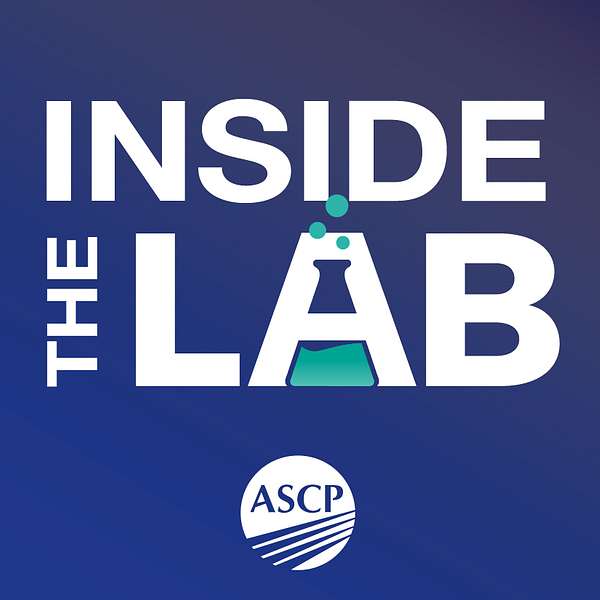
Inside the Lab
Inside the Lab
S3Ep6:Leadership Institute Book Club: Invisible Women by Caroline Criado Perez
Data is fundamental to the modern world. From education to healthcare to economic development and public policy, we rely on data to allocate resources and make decisions.
In Caroline Criado Perez’s groundbreaking book, Invisible Women: Exposing Data Bias in a World Designed for Men, she contends that there’s a gender data gap. And because the bulk of the world’s data is based on male bodies and behaviors, we live in a world that caters to men and disadvantages women. How does this gender data gap impact women in pathology and laboratory medicine? And what can we do to make the profession more inclusive?
On this episode of Inside the Lab, Host Kelly Swails, MT(ASCP), is joined by Dr. Alison Krywanczyk, MD, FASCP, Deputy Medical Examiner at the Cuyahoga County Medical Examiner's Office in Cleveland, Ohio, Dr. Letycia Catalina Nunez-Argote, PhD, MPH, MLS(ASCP)CM, Assistant Professor of Clinical Laboratory Sciences at the University of Kansas Medical Center in Kansas City, Kansas, and Dr. Catherine M. Stefaniuk, DO, MBA, FASCP, Assistant Medical Director of Clinical Pathology at the University of Cincinnati Medical Center, for an ASCP Leadership Institute Book Club discussion of Invisible Women.
Dr. Krywanczyk, Dr. Nunez-Argote, and Dr. Stefaniuk discuss the unpaid work many women do and share their experiences with the changing roles of breadwinner and homemaker between the genders. They explore the negative perceptions of women in positions of authority and explain how the myth of meritocracy has impacted their careers in pathology and laboratory medicine. Listen in for insight on designing laboratory spaces for women and learn to leverage your knowledge as a medical professional to advocate for women in the healthcare system.
Topics Covered
· How the gender data gap in healthcare caters to men and actively disadvantages women
· The unpaid work most women do and the changing roles of breadwinner and homemaker between the genders
· Why so many women trade flexibility for advancement and how working part-time disadvantages women in terms of healthcare and retirement benefits
· How the gender data gap impacts pathology and laboratory medicine and what we can do to make the laboratory more amenable to women
· The negative perceptions of women in positions of authority and how that impacts the way we work
· Situations where our knowledge as medical professionals can help us advocate for women whose symptoms are not understood or believed
· How insights gained from Invisible Women will influence decision-making moving forward
Connect with ASCP
ASCP
ASCP on Facebook
ASCP on Instagram
ASCP on Twitter
Connect with Dr. Krywanczyk
Dr. Krywanczyk on Twitter
Connect with Dr.Nunez-Argote
Dr. Nunez-Argote on Twitter
Connect with Dr. Stefaniuk
Dr. Stefaniuk on LinkedIn
Resources
ASCP Leadership Institute
Invisible Women: Exposing Data Bias in a World Designed for Men by Caroline Criado Perez
Inside the Lab in the ASCP Store